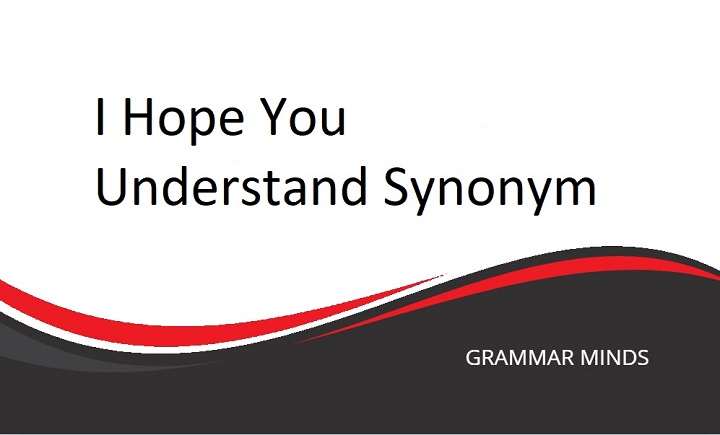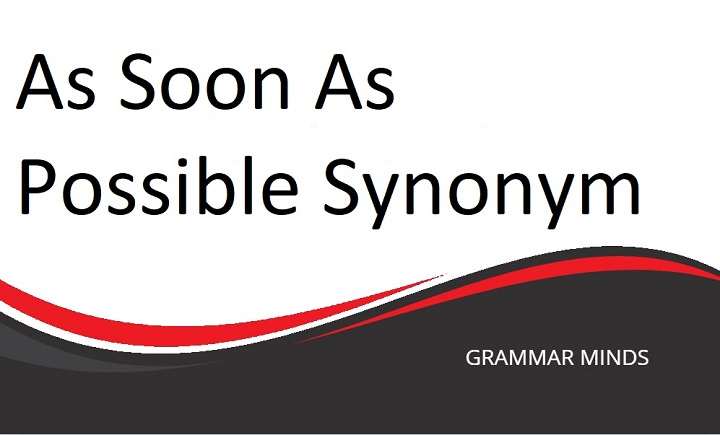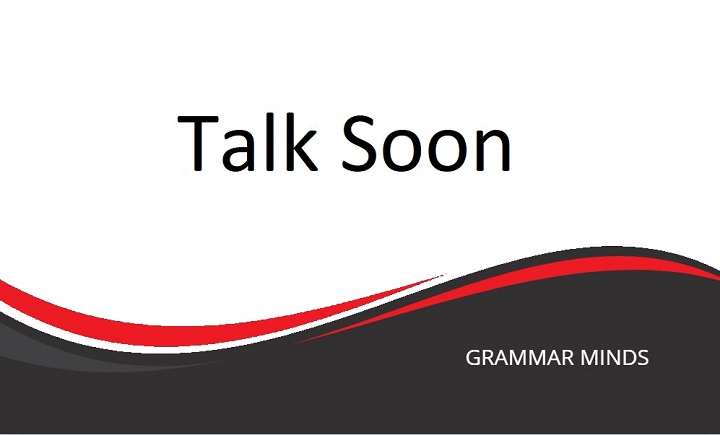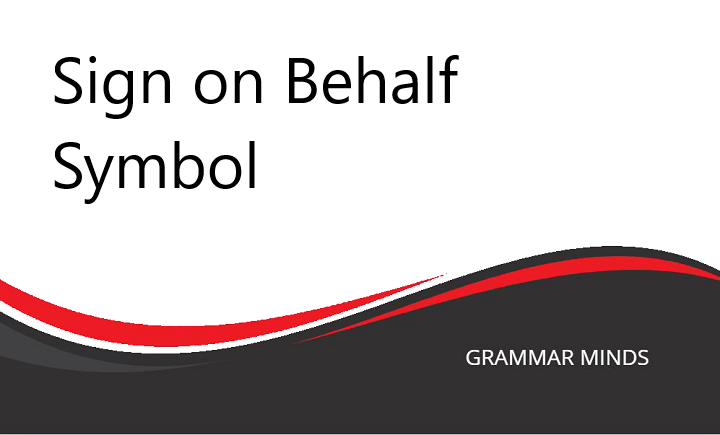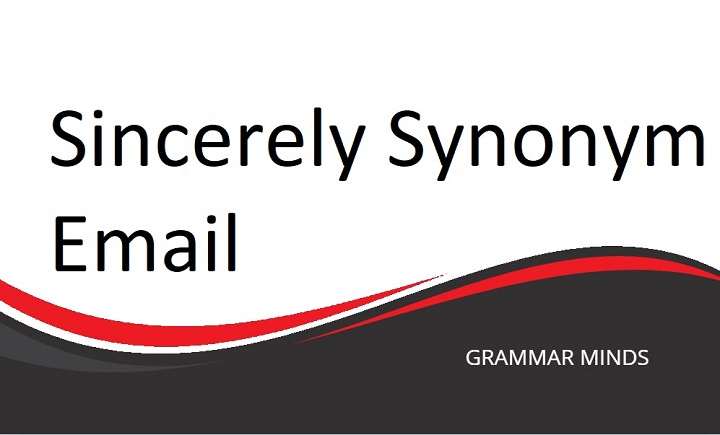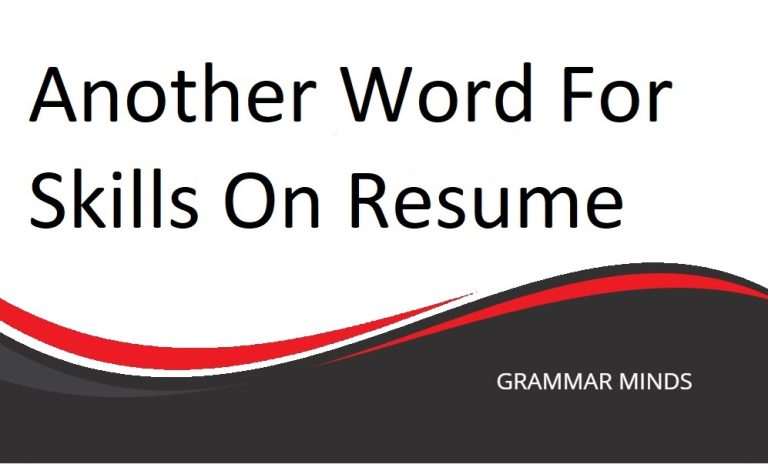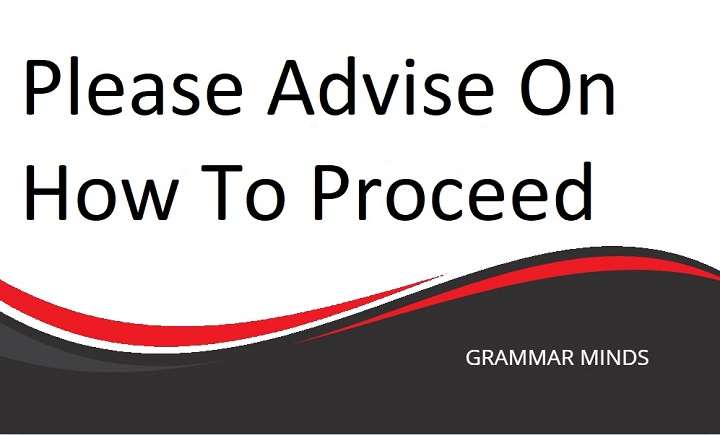Do you find yourself using the phrase “I hope you understand” repeatedly? Whether you’re crafting an email, engaging in professional conversations, or casually texting friends, this phrase might begin to feel a bit overused. It’s a common expression we often rely on to convey understanding or empathy. However, constantly using it can make your communication seem monotonous or even robotic.
Don’t worry! We’ve compiled a handy list of alternative phrases that you can use to mix things up and sound more varied in your conversations. Whether you’re aiming for a formal tone or looking for something more casual, these alternatives will elevate your language and keep your communication fresh.
Other Ways to Say “I Hope You Understand”
Sometimes, you want to express understanding or empathy without relying on the same phrase repeatedly. Here’s a list of 10 alternative phrases for “I hope you understand” that you can incorporate into both formal and informal settings.
“I Trust This Makes Sense”
This phrase communicates a level of trust in the recipient’s comprehension. It’s often used in professional settings where you need to convey a respectful assumption that your explanation is clear.
“I Appreciate Your Understanding”
This is a polite and grateful way of expressing the hope that someone understands the situation. It also expresses a note of appreciation, making it a courteous option for formal emails or conversations.
“Thank You for Your Patience”
This phrase implies understanding without directly stating it. It’s a great way to express empathy and gratitude when there’s a delay or complication.
“I Trust This Clarifies Things”
Another formal phrase, this alternative shows your confidence in the clarity of your communication. It’s ideal for situations where you’ve provided detailed information and expect the recipient to follow along.
“I Hope This is Clear”
This phrase retains the original meaning of “I hope you understand” but changes up the wording. It’s slightly more direct and works well in both formal and informal contexts.
“I Apologize for Any Confusion”
If you’re worried about something being misunderstood, this phrase takes accountability while simultaneously asking for understanding. It’s useful for resolving misunderstandings in a polite way.
“I’m Sure You Can See Where I’m Coming From”
This is a more casual alternative that works well in conversations with people you’re already familiar with. It conveys a sense of shared understanding.
“I Trust You’ll Get the Point”
A slightly informal option, this phrase assumes that the recipient will understand your point of view. It’s useful for conversations with colleagues or acquaintances where you feel confident they grasp the situation.
“I Hope That’s Alright With You”
This alternative is perfect for situations where you’re asking for someone’s approval or consent. It conveys empathy and consideration for the other person’s feelings.
“I Hope We’re on the Same Page”
This informal alternative is great for casual conversations and situations where mutual understanding is key. It’s often used to confirm that both parties have the same understanding of the matter at hand.
Key Notes
“I hope you understand” is grammatically correct and suitable for both formal and informal situations. However, it can sometimes feel a bit basic and repetitive.
- “I Trust This Makes Sense” is ideal for formal situations, especially in emails and meetings where you want to communicate trust in the recipient’s understanding.
- “I Appreciate Your Understanding” is a great way to express empathy and gratitude in formal contexts.
- “Thank You for Your Patience” is an informal yet polite alternative that implies understanding.
Keep reading to discover how to use these phrases in both formal and informal situations, along with real-life examples of how they can be applied.
Phrase Breakdown and Usage Examples
“I Trust This Makes Sense”
Usage: If you’re looking for a more formal way to say “I hope you understand,” try using “I trust this makes sense.” This alternative adds a touch of sophistication, making it ideal for professional environments such as emails or meetings.
Example (in an email):
Dear [Recipient],
Thank you for your inquiry. I have outlined the necessary steps below for your review. Please let me know if further clarification is needed.
I trust this makes sense.
Best regards,
[Your Name]
“I Appreciate Your Understanding”
Usage: A more formal alternative to “I hope you understand” is “I appreciate your understanding.” This phrase works well in situations where you’re asking for patience or acknowledging a potential inconvenience.
Example (in an email):
Dear [Recipient],
Thank you for your patience as we work through this process. We are doing everything we can to resolve the issue as quickly as possible.
I appreciate your understanding.
Best regards,
[Your Name]
“Thank You for Your Patience”
Usage: This phrase is especially useful when there’s a delay or issue that requires the recipient to wait. It conveys understanding and gratitude in a polite and informal way.
Example (in conversation):
Hey [Friend’s Name],
Thanks for helping me out today! Thank you for your patience, and I’ll get back to you soon.
“I Trust This Clarifies Things”
Usage: If you’ve explained something in detail and want to ensure the recipient understands, use “I trust this clarifies things.” It’s perfect for situations that require detailed explanations.
Example (in an email):
Dear [Recipient],
Please find the revised document attached. The changes are highlighted in yellow for your convenience.
I trust this clarifies things.
Best regards,
[Your Name]
“I Hope This is Clear”
Usage: This phrase is a direct alternative to “I hope you understand,” and works well in both formal and informal settings.
Example (in an email):
Hi [Recipient],
I’ve outlined the necessary steps in the attached document. Please review them at your convenience.
I hope this is clear.
Best,
[Your Name]
“I Apologize for Any Confusion”
Usage: This is a great phrase to use when you think your explanation might not have been clear and want to take accountability for any misunderstandings.
Example (in conversation):
Sorry if I wasn’t clear earlier. I apologize for any confusion and will clarify it right now.
“I’m Sure You Can See Where I’m Coming From”
Usage: This casual phrase is great when you’re speaking to someone familiar and want to express understanding in a friendly, conversational way.
Example (in conversation):
I know it’s been a rough week, but I’m sure you can see where I’m coming from with this decision.
“I Trust You’ll Get the Point”
Usage: For informal settings where you feel confident the other person understands your message, this phrase works well.
Example (in conversation):
I’ve tried to explain it as clearly as possible. I trust you’ll get the point.
“I Hope That’s Alright With You”
Usage: This is a great alternative for seeking someone’s approval or ensuring that they’re okay with a decision you’ve made.
Example (in conversation):
I’ve gone ahead and made the reservation for 8 PM. I hope that’s alright with you.
“I Hope We’re on the Same Page”
Usage: This casual alternative works well in informal settings and situations where mutual understanding is crucial.
Example (in conversation):
So, just to make sure, we’re meeting at 7, right? I hope we’re on the same page.
Is It Correct to Say “I Hope You Understand”?
Yes! “I hope you understand” is grammatically correct and suitable for both formal and informal settings. It’s a versatile phrase that can be used in professional emails, conversations with colleagues, or casual chats with friends. However, relying on the same phrase too often can make your communication sound repetitive.
That being said, using synonyms like the ones we’ve listed above will help you mix up your language and sound more varied in your communication. You can also try slight variations of this phrase, such as:
- “I trust you understand.”
- “I trust you’re aware.”
- “I believe you understand.”
Also Read
Creative Newspaper Name Ideas for Your Publication
In conclusion, “I hope you understand” is a perfectly acceptable and grammatically correct phrase, whether you’re using it in a formal or informal setting. However, the alternative phrases provided in this article will help you diversify your vocabulary and communicate more effectively in different contexts. Whether you’re drafting a professional email or having a casual chat, using these phrases will make your communication more engaging and less repetitive.

